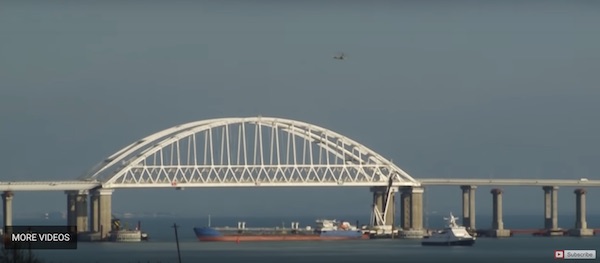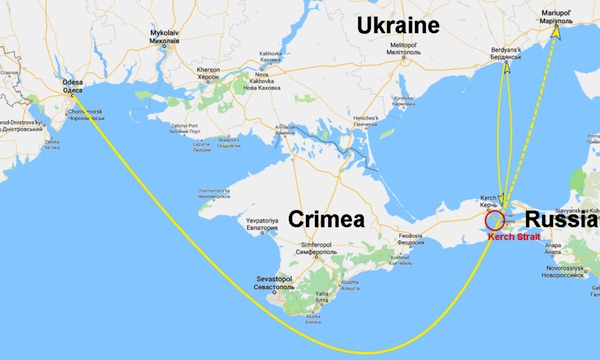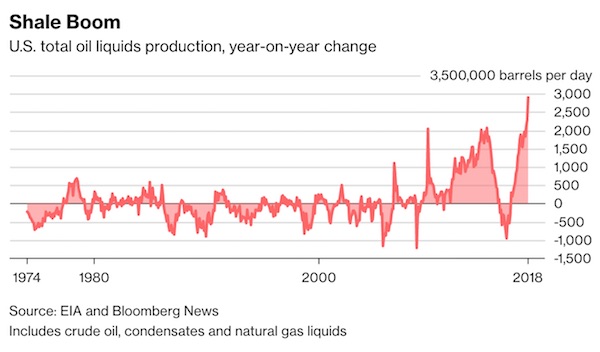
Vincent van Gogh On the Outskirts of Paris 1887

I would think Ukraine is trying to provoke things, but western politicians and media all disagree.
• Russia Seizes Three Ukrainian Naval Ships In The Black Sea (AP)
Russia seized three Ukrainian naval ships off the coast of Russia-annexed Crimea on Sunday after opening fire on them and wounding several sailors, a move that risks igniting a dangerous new crisis between the two countries. Russia’s FSB security service said early on Monday its border patrol boats had seized the Ukrainian naval vessels in the Black Sea and used weapons to force them to stop, Russian news agencies reported. The FSB said it had been forced to act because the ships — two small Ukrainian armored artillery vessels and a tug boat — had illegally entered its territorial waters, attempted illegal actions, and ignored warnings to stop while maneuvering dangerously.

“Weapons were used with the aim of forcibly stopping the Ukrainian warships,” the FSB said in a statement circulated to Russian state media. “As a result, all three Ukrainian naval vessels were seized in the Russian Federation’s territorial waters in the Black Sea.” The FSB said three Ukrainian sailors had been wounded in the incident and were getting medical care. Their lives were not in danger, it said. Ukraine denied its ships had done anything wrong, accused Russia of military aggression, and for the international community to mobilize to punish Russia. The United Nations Security Council is due to discuss the developments on Monday at the request of Russia, said Deputy Russian U.N. Ambassador Dmitry Polyanskiy.
Ukrainian President Petro Poroshenko met with his top military and security chiefs. Poroshenko said he would propose that parliament impose martial law. [..] Earlier on Sunday, Russia’s border guard service had accused Ukraine of not informing it in advance of the three ships’ journey, something Kiev denied. Russia said the Ukrainian ships had been maneuvering dangerously and ignoring its instructions with the aim of stirring up tensions. Russian politicians denounced Kiev, saying the incident looked like a calculated bid by Poroshenko to increase his popularity ahead of an election next year. In another sign of rising tensions, Russia’s state-controlled RIA news agency reported on Sunday night that Ukrainian forces had started heavy shelling of residential areas in eastern Ukraine which is controlled by pro-Moscow separatists.


She needs 320+ votes, has 260.
• Not Remotely Possible For May’s Brexit Deal To Pass Parliament – UK MP (CNBC)
It is not “remotely possible” that U.K. Prime Minister Theresa May’s Brexit withdrawal agreement would pass the House of Commons, which is the lower house of Parliament, in a crucial vote that will likely take place in December, a member of Parliament said on Monday. Lawmakers on both sides of the debate over the United Kingdom’s future as part of the European Union are unhappy with the proposals set by May in a 585-page, legally-binding document that lays out the terms of the former’s exit, Sarah Wollaston, who is also a member of the prime minister’s Conservative party, told CNBC’s “Squawk Box.”
“I just don’t think it’s remotely possible that this deal would pass the Commons,” she said, adding that it will likely fall short on the numbers needed to move the agreement forward. “That doesn’t necessarily mean that we would crash out with no deal because, certainly, Parliament, British parliamentarians are very opposed to leaving with no deal at all.” [..] May needs a simple majority of the 650 lawmakers in the House of Commons, but experts have indicated it will be an uphill task for the prime minister. Her Conservative Party holds 315 seats and represents the largest party in the House, but a significant number are against the plan, including some pro-Brexit members. Meanwhile, lawmakers in the opposition have mostly indicated that they will vote against the deal.

Was the vote fraudulent to begin with?
• UK High Court To Rule If Brexit Vote ‘Void’ As Early As Christmas (Ind.)
The High Court will rule as early as Christmas whether Brexit should be declared “void”, in a legal case given a turbo-boost by the criminal investigation into Leave funder Arron Banks. Judges are poised to fast track the potentially explosive challenge, after Theresa May’s refusal to act on the growing evidence of illegality in the 2016 referendum campaign, The Independent can reveal. Lawyers describe that failure as “absolutely extraordinary” – given the National Crime Agency’s (NCA) probe into suspicions of “multiple” criminal offences committed by Mr Banks and the Leave.EU campaign.
Now The Independent understands the case is likely to move to a full hearing and a ruling within weeks of opening on 7 December, with the clock ticking on the UK’s departure from the EU next March. Both its lawyers and a leading academic believe its chances of success have been given a big boost by the unfolding scandal and the government’s refusal to recognise the gravity of what is being exposed. The government is expected to deploy Sir James Eadie QC – the star barrister who led the unsuccessful battle for the government to trigger Article 50 without parliament’s consent – in a sign of the case’s importance.

We haven’t even started.
• Nineteen Months Of Brexit Wrangling – And That’s Just A Taster (BBC)
There was a definite “battle of the tones” at the seal-the-deal Brexit summit with Theresa May. EU leaders were determinedly sombre, while the UK prime minister had to sound upbeat and positive about her country’s Brussels-free future. It shouldn’t be under-estimated. Sunday was a huge day for the EU, signing off on the divorce papers of a departing key member state for the first time in the history of the bloc. In the eyes of many, Brexit counts as an EU failure. At the summit, French President Emmanuel Macron reminded the press of the fragility of European Union. Which is why, time and again, EU leaders in Brussels continue to make so much of the (unusual) show of unity the Brexit process has provoked in EU ranks.
For now, of course, all European eyes turn to the UK to see if the hard-negotiated Brexit deal passes through the House of Commons. If it doesn’t, the President of the European Commission, Jean-Claude Juncker, insists there will be no deal. “This is the deal. This is THE deal,” he told me emphatically, ruling out the possibility of renegotiating the Brexit texts. If he’s true to his word, and parliament votes down the divorce deal, then all 19 months of painful EU-UK negotiations were for naught. And both sides could find themselves staring at the cost and potential chaos of what the EU’s chief Brexit negotiator Michel Barnier calls a non-orderly Brexit. EU leaders are hell-bent on avoiding that.

May sure scared the money.
• Business Leaders Rally Behind May’s Brexit Deal Amid Fears Of Crashing Out (G.)
Business leaders have rallied to support Theresa May’s Brexit deal, even as an independent study showed that the prime minister’s agreement meant the UK stood to lose £100bn a year by 2030 in reduced trade and income. Executives in the City of London warned MPs to vote for the deal negotiated by the prime minister to avoid a no-deal Brexit that would harm the UK economy. TheCityUK, which represents banks and insurers in the Square Mile, said parliament had “a straight choice” between the agreement hammered out in Brussels and a no-deal Brexit, “which offers only higher risk, costs and disruption”.
Miles Celic, the organisation’s boss, said: “The focus must now be on securing the withdrawal agreement and the transition period it brings – which is critical for our industry and many others. There is much still to be negotiated to define the future relationship. The sooner that can get started, the better.” His warning echoed those of industry bodies and small business groups, which have become nervous in recent weeks that No10 would fail to overcome the hurdles towards securing a withdrawal agreement. The Institute of Directors, which has found in polls of its members that they split 50:50 over proposals for a second referendum, said they all objected to an outcome that leaves Britain with no deal.
“The deal the EU approved today provokes a wide range of reactions across the political spectrum, and indeed among business leaders, but the steer from our members is that avoiding no deal must be the main priority,” said Stephen Martin, the director general.

Hmmm. Problem with shale is debt.
• Texas Is About to Create OPEC’s Worst Nightmare (BBG)
OPEC helped create the monster that haunts its sleep. After it flooded the market in 2014, oil prices crashed, forcing surviving U.S. shale producers to get leaner so they could thrive even with lower oil prices. As prices recovered, so did drilling. Now growth is speeding up. In Houston, the U.S. oil capital, shale executives are trying out different superlatives to describe what’s coming. “Tsunami,’’ they call it. A “flooding of Biblical proportions’’ and “onslaught of supply’’ are phrases that get tossed around. Take the hyperbolic industry talk with a pinch of salt, but certainly the American oil industry, particularly in the Permian, has raised a buzz loud enough to keep OPEC awake. “You’ve got an awful lot of production that can come in very economically,’’ said Patricia Yarrington, Chevron’s CFO.
“If you think back four or five years ago, when we didn’t really understand what shale could do, the marginal barrel was priced much higher than what we think the marginal barrel is priced today.’’ That shift makes shale resilient to a price tumble. After touching a four-year high in October, West Texas Intermediate, the U.S. benchmark, has fallen by more than 20 percent. [..] August saw the largest annual increase in U.S. oil production in 98 years, according to government data. The American energy industry added, in crude and other oil liquids, nearly 3 million barrels, roughly the equivalent of what Kuwait pumps, than it did in the same month last year. Total output of 15.9 million barrels a day was more than Russia or Saudi Arabia.
[..] By the end of 2019, total U.S. oil production – including so-called natural gas liquids used in the petrochemical industry – is expected to rise to 17.4 million barrels a day, according to the U.S. Energy Information Administration. At that level, American net imports of petroleum will fall in December 2019 to 320,000 barrels a day, the lowest since 1949, when Harry Truman was in the White House. In the oil-trading community, the expectation is that, perhaps for just a single week, the U.S. will become a net oil exporter, something that hasn’t happened for nearly 75 years.


Now he tells us.
• Tesla Was Weeks From Dying Earlier This Year – Elon Musk (MW)
Tesla Inc. was “bleeding money like crazy” during its Model 3 production ramp-up and almost went under earlier this year, Elon Musk said Sunday. In an interview aired Sunday night on “Axios on HBO,” Tesla’s chief executive said the electric-car company was “within single-digit weeks” of dying. “Essentially, the company was bleeding money like crazy, and if we didn’t solve these problems in a very short period of time, we would die. And it was extremely difficult to solve them,” Musk said. Earlier this year, Musk described “production hell” as Tesla ramped up production to build 5,000 Model 3 sedans a week by the end of June, and said he had been sleeping on the factory floor.
Musk admitted in Sunday’s interview that he had been stretched to the limit. “People should not work this hard,” he said of his stretch working 22-hour days, seven days a week. “This is very painful.” “It hurts my brain and my heart,” Musk said. “It hurts. It is not recommended for anyone. I just did it because if I didn’t do it… there was a good chance Tesla would die.” In late October, Tesla posted a surprise quarterly profit, and earlier this month, Musk said Tesla is not “staring death in the face” anymore, and it will likely be cash-flow positive for all quarters going forward.

Godspeed. Politics? You sure?
• Former Greek FinMin Varoufakis To Run In European Election – In Germany (R.)
Former Greek finance minister Yanis Varoufakis, who was outspoken in his criticism of the austerity policies championed by Berlin at the height of the euro zone’s debt crisis, is to stand in European elections next year – in Germany. The Democracy in Europe Movement 2025 (DiEM25), which he launched in 2016 to “democratize” the continent, picked him on Sunday as a candidate for the elections to the European Parliament in May 2019. “I accept [the nomination] because it epitomizes the new trans-national politics we need in Europe,” he told a news conference in Berlin where his colleagues unfurled a banner with the slogan “European Spring.” “I call on all of you to join us in this pan-European quest for democracy in Europe, democracy in Germany as a condition for prosperity and authentic democracy,” he said.
The motorbike-riding academic-economist, who rose to celebrity status in the euro crisis, once described the austerity measures forced on Greece by creditors as “fiscal waterboarding”. Varoufakis, who frequently clashed with his hardline German counterpart at the time, Wolfgang Schaeuble, said the political center in Germany was under threat because of austerity. “On paper, Germany is drowning in money…but the German people have been victims of the same austerity as the rest of Europe. The result is low levels of investment,” he said. This, he argued, boosted inequality, share prices and house prices. He said his movement wanted to pour cash, raised if necessary via bond issuance, into green policies to tackle climate change.

‘You’d better do today what they’ll do tomorrow..’
• Give In To The EU, Greek PM Tsipras Counsels Italian Government (K.)
Prime Minister Alexis Tsipras has counseled the Italian government to give in to EU demands that it lower its budget deficit, according to newspaper Corriere della Sera. In an analysis piece titled “Tsipras’ advice to Italy: Give in now, then it will be worse,” Federico Fubini writes that Tsipras was sort of apologetic to the Italians for not taking their side in their conflict with the EU Commission. “I can not do anything because I would be the first to arouse suspicion,” Tsipras reportedly said. Rubini adds: “(Tsipras) no doubt remembers that Italy did nothing when he tried desperately to soften the conditions – then draconian – placed by the euro area on Greece.”
“But then Tsipras, mindful of the retreat that he improvised in July 2015 after blocking the bank accounts of the voters to avoid the collapse of the system, has offered advice to Italy. ‘You’d better do today what they’ll do tomorrow,’ he said. ‘If instead you have another idea – he added, perhaps alluding to the euro exit option that he refused – well, then, good luck.’”

Ha!
• Russia Space Agency To Check If US Moon Landings Really Happened (Ind.)
The head of Russia‘s national space agency has proposed a mission to the moon to verify whether the American moon landings really took place. Dmitry Rogozin responded to a question about whether Nasa’s Apollo programme actually put men on the moon back in the 1960s and 1970s during a conversation with the president of Moldova, Igor Dodon. He appeared to be joking, as he smirked and shrugged while answering. But conspiracies surrounding Nasa’s moon missions are common in Russia. In a video of their interaction, posted to his 815,000 Twitter followers, Mr Rogozin says: “We have set this objective to fly and verify whether they’ve been there or not”.
Nasa’s six well-documented official manned missions to the surface of the Moon, beginning with astronauts Neil Armstrong and Buzz Aldrin in July 1969 and continuing with Gene Cernan and Jack Schmitt in December 1972, have been dogged with conspiracy theories. In 2015, a former spokesman for the Russian Investigative Committee called for an investigation into the Nasa moon landings. Vladimir Markin said an enquiry should be launched into the disappearance of original footage from the first moon landing in 1969 and the whereabouts of lunar rock, which was brought back to Earth during several missions.









Home › Forums › Debt Rattle November 26 2018